
The Department of Computer Science is an energetic, collaborative department that fosters dynamic teaching and cutting-edge research. This page provides an overview of the department and why it is a great place to work and study. See the University's website for additional details about the computer science academic program, including course offerings, major and minor requirements, advanced placement and transfer credit, independent research, honors, and graduation awards.
The department recently moved into our new home in Bernstein Hall, a hub of creativity and innovation that finished construction in 2024. Bernstein Hall is shared by the Department of Computer Science, the Film and Media Studies Program, and the Office of Entrepreneurship and Innovation. This promotes collaborations in new interdisciplinary spaces, including a "gadgets and gizmos" makerspace, an eye tracking lab, a video game lab, an experimental exhibition and performance space, student work studios, and other flexible teaching and research facilities. Bernstein Hall is the anchor of Colgate's Middle Campus Initiative for Arts, Creativity, and Innovation, which will revolutionize Colgate's educational offerings in technology and the arts.
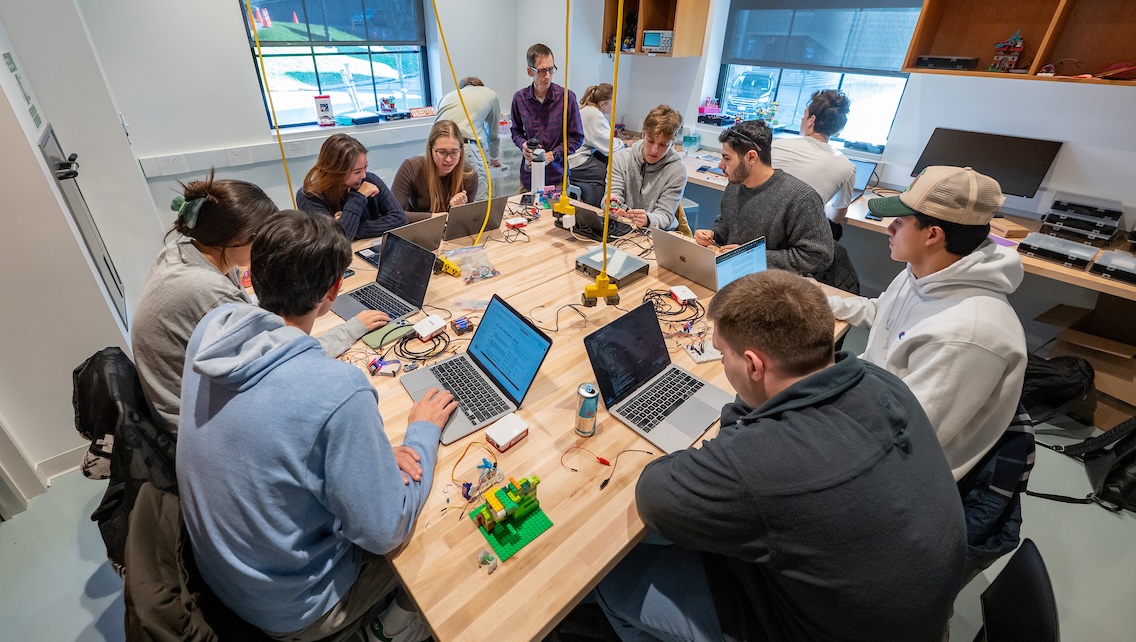
The department offers a robust computer science education covering theoretical and applied topics relevent to students pursuing graduate school and a wide variety of careers. Our two-course introductory sequence is accessible to students regardless of their prior experience with computer science. These courses introduce students to programming and algorithmic reasoning through hands-on exercises and real-world examples. We have seen substantially increased student interest and enrollment in recent years, yet we maintain small class sizes that provide students with individual faculty attention.
Students majoring or minoring in computer science next take a set of foundational 200-level courses in data structures and algorithms, systems, and discrete math. These courses are the prerequisites for all upper-level electives, giving students maximum flexibility in choosing upper-level electives that match their interests.
We offer a broad variety of upper-level electives, including courses in software development, cybersecurity, graphics, networks, human-computer interaction, machine learning, natural language processing, ethics and technology, algorithm analysis, and hardware development. These courses are taught by faculty with research expertise in the subject area. In many of these electives, students complete ambitious term projects building practical systems and tackling open questions.
The capstone of our curriculum is the opportunity for students to conduct independent research and an honors thesis. Research students receive one-on-one faculty advising as they pursue cutting-edge projects over a semester or an academic year. Students regularly present the results of their research as posters or papers at international computer science conferences.
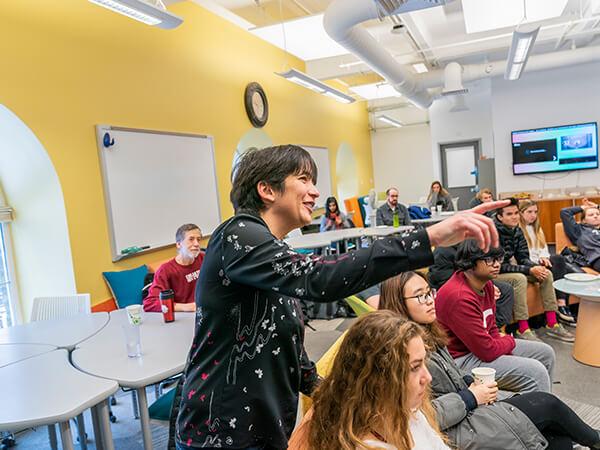
Department faculty are engaged in groundbreaking research across many fields of computer science with regular publications in academic conferences and journals. See our individual faculty websites for more details about specific research projects and interests.
Faculty research is strongly supported by Colgate University. Faculty members have access to state-of-the-art research facilities as well as guaranteed funding for travel, research supplies, and academic year and summer student researchers. The Colgate high-performance computing cluster is undergoing a major expansion with recent grant funding from the National Science Foundation. Collaborations between faculty and with researchers at other institutions are also common.
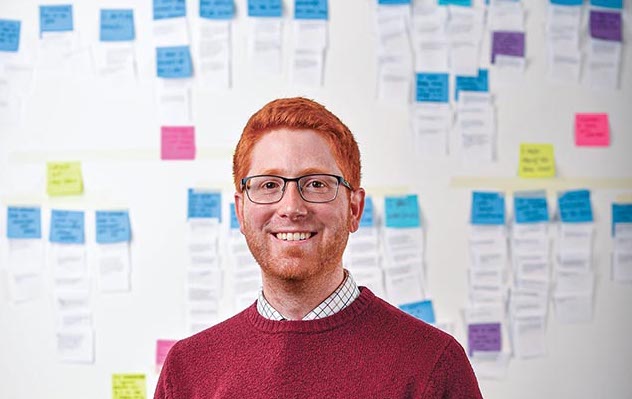
Colgate students are passionate, self-driven, and have broad interests. A walk through the department will find students collaborating on projects and coursework, discussing social and ethical implications of new technologies, and sharing ideas with faculty. Many computer science students choose to double major or minor in departments across the University. This exemplifies Colgate's liberal arts spirit and lets students draw connections between diverse fields in classroom discussions and independent research.
Computer science-related student organizations, including <Colgate Coders> and the Colgate Women in Computer Science (WiSC), are very active. Student-organized seminars, hackathons, guest speakers, and social events occur throughout the year. The department regularly funds students attending conferences such as the Grace Hopper Celebration of Women in Computing and the Richard W. Tapia Celebration of Diversity in Computing.
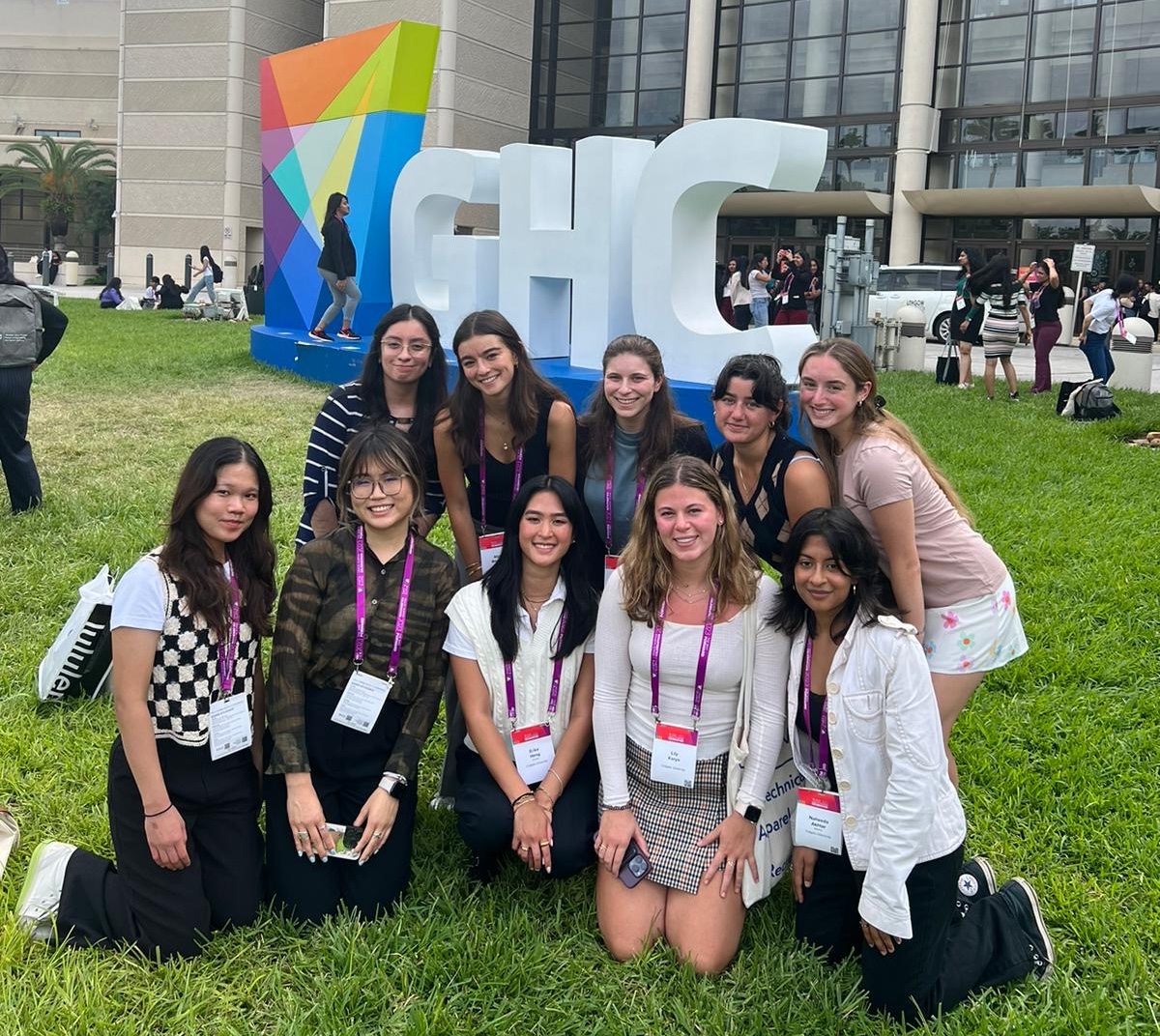
The department is engaged in several interdisciplinary initiatives spanning Colgate's campus. These include the Arts, Creativity, and Innovation Initiative and the Robert H.N. Ho Mind, Brain, and Behavior Initiative. These initiatives provide funding and programmatic support for interdisciplinary research in areas highly relevant to modern society.
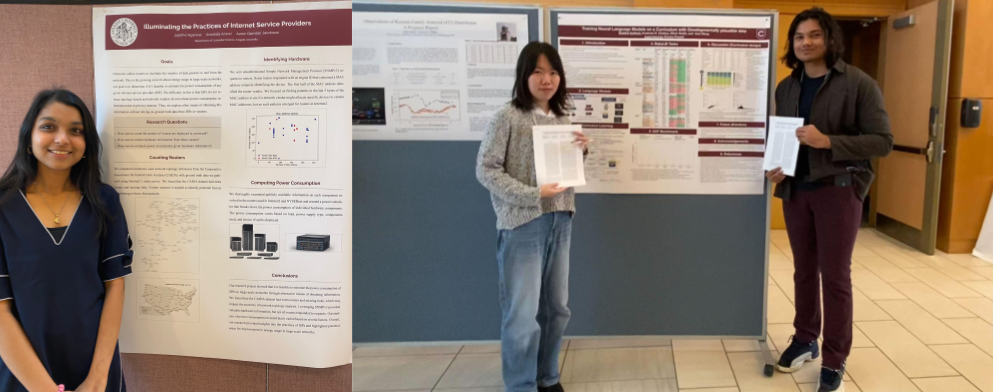
See our News page and Instagram account for recent highlights. Colgate students new to computer science should should take COSC 101 in an upcoming semester. Colgate students interested in majoring or minoring in computer science are encouraged to email a faculty member and/or visit faculty office hours. . All other questions should be directed to Kathleen Stahl, Academic Department Coordinator (kstahl@colgate.edu).
© 2025 Colgate University Department of Computer Science
Bernstein Hall, Colgate University